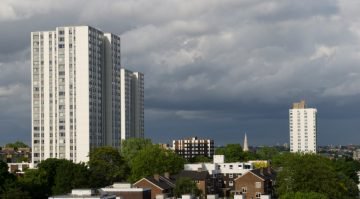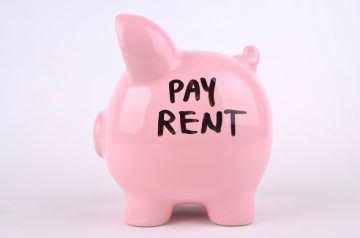The Shocking Difference in Rent Prices Around the UK
A national self-storage firm has analysed average rental properties around the country to highlight the shocking difference between rent prices, particularly between the north and south.
StoreFirst.com has revealed what a private tenant can rent for £800 or less per month in the UK’s ten largest cities, from a three-bedroom house in Manchester to a single bedroom in a London flatshare.
The company found that the average UK rent price, excluding London, was £740 per month in January this year, up by 5.5% on last year’s £702.
Unsurprisingly, London was the most expensive place to rent, with the single bedroom flatshare in Whitechapel costing £800 a month.
The average rent price in the capital is a huge £1,510 per month.
The cheapest London borough for renters is Havering, which has an average monthly rent price of £1,161. Kensington and Chelsea was named the most expensive, at £2,720 a month.
Behind London, the most expensive place to rent in the UK is the South East, with an average monthly rent of £933.

The Shocking Difference in Rent Prices Around the UK
In Birmingham, tenants can rent a furnished, two-bedroom terraced house with two reception rooms for £800 per month, or a two-bed apartment with parking for £725.
A two-bed flat with a separate utility area is £750 in Bristol.
However, the more shocking differences are found the further north you go.
In Manchester, a spacious three-bed terraced house with a cleaner costs £795, while £5 more gets you a two-bed apartment with parking.
But Liverpool is even cheaper – a two-bed duplex apartment costs £725, while you can also find a four-bed terraced house with a garden for the same price.
Tenants in Leeds can get a two-bed apartment in the city centre with a Juliet balcony for just £650.
In Bradford, a three-bed semi-detached house with a garden and parking for two cars is £800 per month. Alternatively, a four-bed detached house with parking, a double garage, en suite shower and breakfast bar costs £750.
The best value for money was found in Sheffield, where a three-bed terraced house costs £675, while a two-bed unfurnished house is £495 a month.
What can you get across the border in Scotland?
Tenants in Glasgow can rent a two-bed semi-detached house for £750 per month, or a three-bed house with a garden for £700.
In Edinburgh, a two-bed flat with a communal garden costs £799.
The three cheapest areas in the UK were the North East at £528 per month, Northern Ireland at £582 and Wales at £595.
The Operations Director at StoreFirst.com, Oliver Kitson, comments on the findings: “When looking at the prices of rentals going up predominantly in city/town centre locations, it’s clear to see that renters are getting much less space for their money in the rental market. Despite Government schemes like Help to Buy and Help to Buy mortgage guarantees, it doesn’t seem as though people are ready, financially, to become homeowners.
“With average property prices being over eight times the average wage, it’s not difficult to see why.”1
If you are a landlord struggling to set the perfect rent price for your area, this advice will help: https://www.justlandlords.co.uk/news/setting-perfect-rent-price-property/
1 http://www.24dash.com/news/housing/2016-03-15-800-links-a-three-bedroom-house-in-Manchester-to-a-single-bed-London-flat-share








